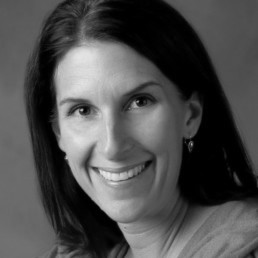Cows, Colleges, and Contentment… and Capitalism

I have always been intrigued by the concept and study of contentment and happiness. Northfield, Minnesota’s slogan of “Cows, Colleges and Contentment” lured me in when I was looking at undergraduate schools – it was a sunny day at Carleton College when I visited in the summer of 1982. I am pretty sure that under my college yearbook picture (book was recycled in our last “lighten the load” purge before we recently moved, so I can’t verify), my stated future goal in life was “contentment.” In our divisive times, it feels like we all might benefit from added scientific wisdom on the topic…
A recent article, “Things That Will Make You Happier Than Winning the Lottery,” piqued my interest. In it, Harvard Professor Sanjiv Chopra explores the research and findings. It turns out that money truly does not buy happiness – people who win the lottery lose the excitement soon after: “The research shows that at the end of a year, they’re back to baseline. Some are less happy,” Chopra says.
Chopra also shares Three Keys to being happier people: Purpose (Dharma), Giving, and Gratitude. The findings resonate with me and feel consistent with the hopeful themes of the season!
It is interesting, then, how important having access to the right amount of capital enables Chopra’s three keys. It is difficult to serve your purpose, give, or express appropriate gratitude if you don’t have the funds to do the work.
ESG-driven impact investors attempt to strike a similar balance. Creating inclusive, socially impactful wealth for all people is not possible without the wherewithal to take meaningful steps forward.
The good news is that the purpose-based recipe is working for a new brand of responsible capitalism. The need for evolved ESG-driven models continues to grow, supporting companies actively doing the important work of our time: purposefully helping solve the climate emergency, giving alternative buckets of capital that support entrepreneurs in disadvantaged communities, and expressing gratitude through paying fair and equitable wages.
At Carleton, I was privileged to get to know Paul Wellstone in a unique way. Before he served as the Senator from Minnesota, he taught Political Science at Carleton. He was a huge sports fan and former college athlete. We would share a beer (or 2) at Sayles Hill after basketball games – it was a different time and our interpretation post-game carbo loading seemed encouraged… He would always have some interesting perspectives on our strategy and approach. He usually thought we could pressure the ball more on defense and rebound with more effort (he was right – you can always play harder).
As Senator, Wellstone became famous as a voice for communities that had not been well served by the status quo. He was known for the maxim, “We all do better when we all do better.” He believed capitalism had a deep responsibility to be more inclusive while promoting innovation and allowing all entrepreneurs the opportunity to thrive in its competitive marketplace.
The late Senator would approve of the ESG-driven impact investing movement. Howard Buffett, Warren’s grandson, recently tweeted about how the ESG-driven movement needs to be intentional about its growth, and strive for more uniform measurements that all can understand.
Young people are driving the change. Students are demanding change. One of the interesting things about the juxtaposition of colleges and capitalism is that the wealth gap we see in individuals is exaggerated in the university setting between the wealthy and less advantaged schools. For the more elite schools, college endowments have grown with strong returns. The less advantaged schools are in danger of shutting down. Students are seeking transparency and demanding more alignment with the Environmental, Social and Governmental goals of the ESG movement. Chopra’s own school has bowed under student pressure and has announced they will be changing the way they measure returns in a more inclusive way – the good news for Harvard is that ESG-driven business is growing and showing excellent returns.
For me, as I have matured, I know a more inclusive capitalism will lead to a better, more contented world. We need all the help we can get on that front. And, from one of the learnings from our sports world experience, we can’t let perfect be the enemy of the good as we take direct action. Significant capital and innovative models are leading the change, and it is OK to take one step at a time.
I am grateful that we still have some time, however limited, to give our duty some hope.
Craig Jonas is the CEO and founder of CoPeace. As a forward-thinking holding company, CoPeace is building a portfolio of carefully selected for-profit companies with measurable social and environmental impact. To learn more about impact investing, check out CoPeace’s Intro to Impact Investing.
Tears for Tears

The tears in our cultural fabric are deep. We are torn and divided. We have little common ground. Do we give up? Eat more cheese? Stay on the couch? Invest in Chevron?
The challenges in front of us are real and consequential. The U.S. election season highlighted the current schism in our world and exposed the inequalities in front of us all:
- There are no easy solutions for the CoVID-19 pandemic. People are sick and people are dying. My 26-year-old son spent a night in the ER and my sister-in-law’s father died last week. The virus is scary and real.
- The struggle for racial justice has been deeply exposed through our current divisions.
- The climate crisis does not give us much time to get our act together.
These bullets are overwhelming. The key is to work to find possible solutions and create a plan of action, and then act. We can solve problems by attacking them head on, incrementally.
The ancient Chinese philosopher Lao Tzu taught that there is your way, my way, and the way of truth. We need to separate people from the problem and focus on the common ground that is the truth:
- I know it is obvious, but science and data must lead the solutions for the pandemic. My wife is a nurse and she is encountering CoVID-19 patients. Because she and the nurse-doctor team take it seriously, wear their PPE, wash their hands, and keep physically as distant as possible (not that easy when giving shots, etc.), nobody on her team has contracted the virus. Business and school can be conducted if it is done very carefully. Follow the data to open safely.
- We all need to recognize the racist past of our world and be honest about how it has created systems of inequality. We share this past. Actively creating new systems, and businesses, that change the access and opportunities for disadvantaged communities provides multiple pathways to change. Diversity does make us stronger. Fixing would help (here is one proposal driven by data). Support companies like FreeCap.
- The climate crisis is real. While the clock is ticking, there are solutions that are creating change and opportunity. It ends up being a good business decision to care about the long-term future of our world (I know I say that often). Watch David Attenborough: A Life On Our Planet. Support companies like Uncharted Power.
It is a difficult time to write a blog – to recognize the real challenges, while simultaneously seeking common ground – and authentically demonstrating optimism for a brighter future.
But we do share so much as one human race. We can be together. We do have the agency to affect positive change. Our common bond is a better collective future. Drink more water. Move with purpose. Invest in impact. Invest in Change Finance.
Allow tears of joy to flow and to start healing the deep tears. Seek solutions to the problems and find common ground to move forward. I am.
Craig Jonas is the CEO and founder of CoPeace. As a forward-thinking holding company, CoPeace is building a portfolio of carefully selected for-profit companies with measurable social and environmental impact. To learn more about impact investing, check out CoPeace’s Intro to Impact Investing.
CoSpo: Changing the World Through Sports
I love sports.
I’ve been involved in sports in one way or another my entire life. I love the competition, the teamwork needed to be successful, the human drama, the camaraderie, the physical fitness aspect, and the lifetime friendships that develop.
But I also love sports because they can bring out the best in humanity. Sports can positively impact the world in ways well beyond the playing fields, courts and ice rinks.
Nelson Mandela said it perfectly, “Sport has the power to change the world, the power to inspire and the power to unite people in a way little else can – it is an instrument for change.”
Sport is certainly a powerful cultural institution, and it can be tapped for good.
“The rituals of sport engage more people in a shared experience than any other institution or cultural activity today,” said author and public policy consultant Varda Burstyn.
Through the years, there has been a lot of excellent philanthropic work done through sports. At CoPeace, we celebrate that fact and encourage it. However, we think there’s tremendous potential to impact the world via sports well beyond the limitations of pure philanthropy.
That’s why we launched CoPeace Sports, or CoSpo, this week. CoSpo is a wholly-owned sports impact subsidiary and is part of the CoPeace holding company portfolio. CoSpo’s mission is to help athletes, coaches and sport organizations maximize their ability to positively impact society.
CoPeace Sports is legally designated as a public benefit LLC (PBLLC). As such, we can help sports entities of all kinds enhance their positive impact activities through both non-profit and for-profit endeavors and activities.
We have a lot of sports-related experience on the CoPeace team. We’ve seen how sports can bring people together in pursuit of a common cause, and we want to leverage that uniting aspect of sport for the good of society.
“Sports is just such a powerful thing,” said Ed Tepper, CoPeace’s chief operating officer. “It taps into the emotions, and we have an incredible opportunity here to use that power and direct it in a positive way that goes far beyond anything philanthropy can do—to create self-sustaining opportunities for companies to do good, help others and make money at the same time.”
CoPeace Sports has been created to be a true win-win endeavor and I’m excited to see the positive impact the company will have as it grows.
Ken Reed is a Senior Communications Advisor at CoPeace. As a forward-thinking holding company, CoPeace is building a portfolio of carefully selected for-profit companies with measurable social and environmental impact. To learn more about impact investing, check out CoPeace’s Intro to Impact Investing.
Sharing Our Message on Positive Thinking Day

Last Sunday (Sept. 13) marked a day that deserves more attention – Positive Thinking Day. Though it is now behind us, we should still reflect on how we can attain a more positive mindset. A positive mindset is a powerful thing. With the right resources, team, and community, this evolves into something even more powerful – positive impact that can transform the world.
CoPeace is a company built on channeling the power of positive thinking into achieving positive impacts on our world. We continue to build an ecosystem of impactful companies providing innovative solutions to the climate crisis and ongoing social injustices. We are fortunate to have a network of like-minded, supportive investors and partners that believe in the CoPeace mission, and we are always looking to include more people in our community!
Positive energy breeds positive energy. As you reflect on this past Positive Thinking Day, how can you share your values within your community to help us all grow?
Jacob Miller is a financial analyst at CoPeace. As a forward-thinking holding company, CoPeace is building a portfolio of carefully selected for-profit companies with measurable social and environmental impact. To learn more about impact investing, check out CoPeace’s Intro to Impact Investing.
A Sports Fan’s Thoughts on Impact Investing

In honor of National Sports Day, August 29th, I’d like to share my full-circle story as both a lifelong sports fan and an impact investing advocate. First, a little background.
I was raised in Lincoln, Nebraska, where a unique religion is celebrated every Saturday during the fall. The service is held in Memorial Stadium, required dress code is red, and the faithful worship…football. My parents tithed, as season ticket holders. I even had the honor of tumbling on the altar, er, field.
I was a competitive athlete in high school, as was my husband. We raised two kids, who are currently both Division-I student-athletes. My previous career was in college sports.
Sports is in my blood.
With the global pandemic of COVID-19, the past six months have been catastrophic on so many levels. We have lost lives, jobs, homes, and dreams. Difficult times require us to reflect on what’s truly important, seek perspective, and lean on what provides solace.
But my happy place essentially vanished with the virus.
Without sports to feed my soul, I focused on my other passion – impact investing – and I quickly realized powerful synergies. They both bring people together. They connect people through the desire for a common goal and collective purpose. They further the dialogue on social justice and racial equality. They inherently build diverse communities who work together as a team. They are value-focused — what means the most to us.
Imagine if we directed the same amount of time, energy, and thought into our spending habits as we do into the playoffs, the championship game, or the MVP. Our purchasing and investing power are larger than any title or trophy. We have the ability to bring positive change into the world simply with our wallets. And everyone can join the team, impact investing is now accessible and inclusive.
As a closing thought, the power of sport in facilitating positive social and environmental change is undeniable. The recent boycotts of the WNBA and NBA players are just one example. We need to listen, learn, converse, and act together, utilizing the platforms we have available every day.
Support your team. Invest in your values. Make the world a better place.
Meg Masten is the Chief Relationship Officer at CoPeace. As a forward-thinking holding company, CoPeace is building a portfolio of carefully selected for-profit companies with measurable social and environmental impact. To learn more about impact investing, check out CoPeace’s Intro to Impact Investing.





